___________________________
Best Home Treatment for Covid
You Have a Positive Covid Test – Now What?
___________________________
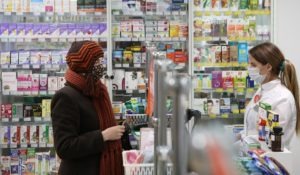
Many people with a Covid-19 diagnosis have mild or no symptoms.
And some people get sicker than others.
There are a few things that you can purchase at your local pharmacy as soon as you are diagnosed with Covid-19 or have Covid-19 symptoms.
Hopefully, they may help you feel better and not need to go to the hospital.
____________________
* Vitamin D
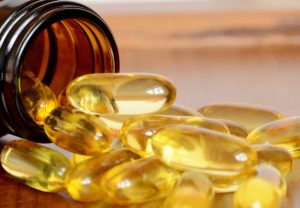
Dose: 1,000 iu – 4,000 iu a day
How it may Help:
Vitamin D may help reduce the number and severity of respiratory illnesses, especially for those who are low in Vitamin D.
Supplementing with 1,000-2,000 international units (IU) of vitamin D per day may be beneficial.
Studies:
LINK vitamin D supplementation found to reduce COVID-19-related mortality, says study
LINK For More Information About Vitamin D
____________________
Vitamin C
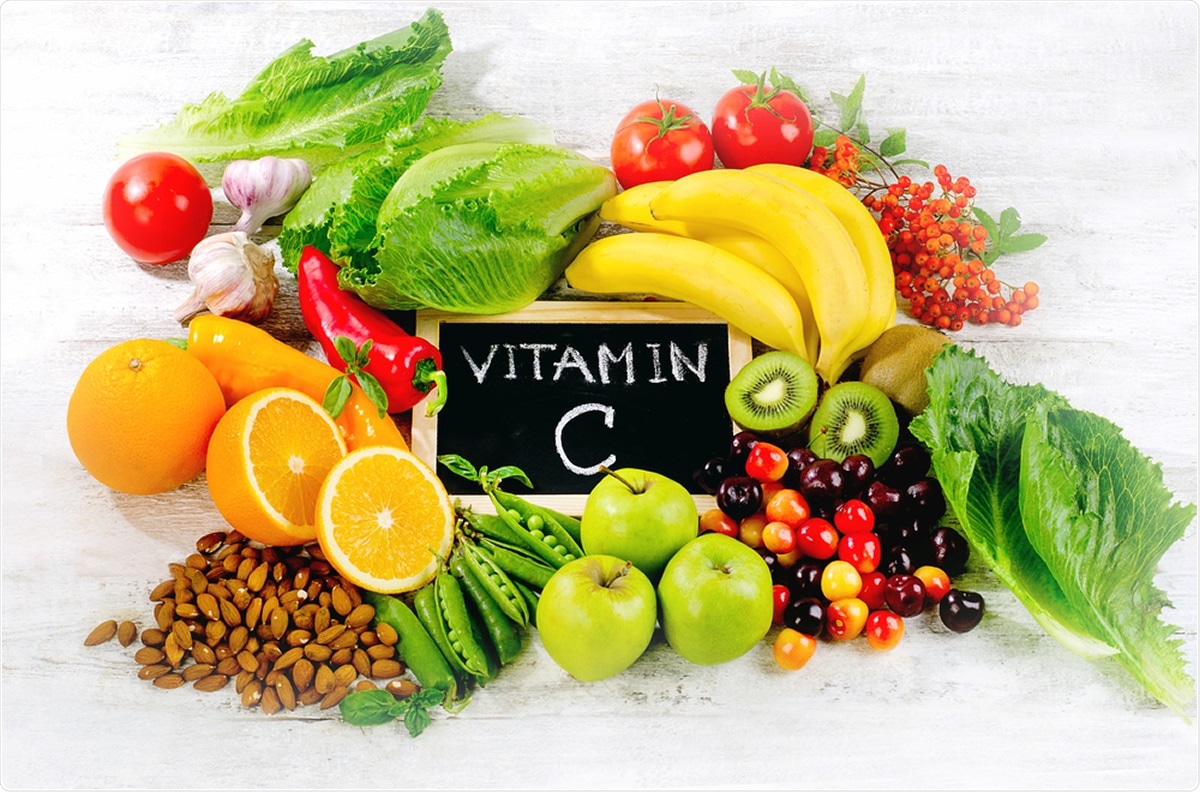
Dose: 250mg – 600 mg a day
How it may Help:
It may help reduce the severity and duration of a cold, especially if you start taking vitamin C prior to feeling ill to try to help boost immunity.
People with kidney issues or a history of renal stones should use caution as Vitamin C is processed by the kidneys and can also cause kidney stones.
Studies:
“Application of a high dose of vitamin C can dramatically reduce the need for treatment with high doses of corticosteroids, antibacterials and antiviral drugs. Vitamin C also can be effective for primary prevention of viral infections by boosting the innate immune response. ” (NIH Dec 23, 2020, link below)
LINK National Institue of Health Vitamin C Role in Prevention and Treatment of Coronavirus
____________________
Zinc
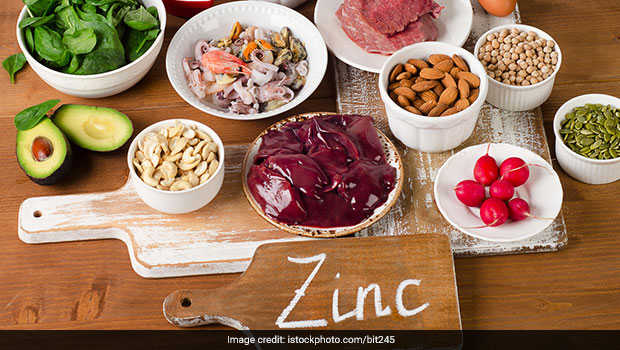
Dose: 8 – 15 mg a day for no more than a month (usually a multivitamin will contain enough zinc)
How it may Help:
Zinc is considered an essential nutrient.
Your body can’t produce zinc or store it, so you need a constant supply of zinc from your diet.
Zinc is present in every cell and may have some anti-viral and anti-inflammatory properties.
Zinc supplements may reduce the risk of infections and promote a better immune response in older adults. It is critical for the development and function of immune cells
Caution: Zinc can interact with other medications (antibiotics and antivirals). Long-term use of high doses of zinc can cause copper deficiency.
Studies:
LINK National Institue of Health Role of Other Supplements in Covis-19 Aug 2020
____________________
Quercetin
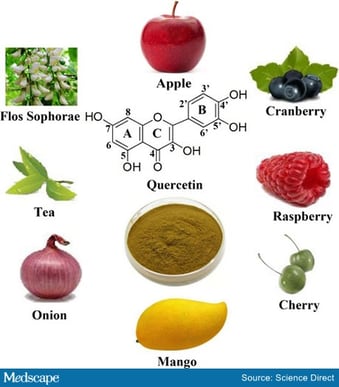
Dose: 500mg once or twice a day for up to 3 months
How it may Help:
Quercetin is a naturally occurring antioxidant/flavonoid that reduces oxidative stress, decreases inflammation, and improves blood flow.
It also helps transport zinc across lipid membranes. This may enhance the antiviral actions of zinc.
Quercetin may interact with some antibiotics known as fluoroquinolones (ciprofloxacin, levofloxacin) and could also interact with other medications that are metabolized through your liver. These drugs may include warfarin, midazolam, cyclosporine, drugs known as the “statins” (atorvastatin, pravastatin, rosuvastatin, simvastatin), medications known as non-steroidal anti-inflammatory drugs (ibuprofen, diclofenac, naproxen), tamoxifen, and possibly losartan.
There is also a possibility it may interact in those individuals with hypothyroidism. Use caution in these patients.
Studies:
LINK Sagepub Journals: Role of Quercetin in Covid Infections
____________________
Vitamn E and Selenium
Dose: Vitamin E: 15 mg once a day is the recommended dose of vitamin E. This is the dose found in most multivitamins.
Selenium: 55-70 mcg is the recommended dose of selenium a day (adults). This is the dose found in most multivitamins.
How it may Help:
Vitamin E
Vitamin E is a fat-soluble nutrient found in many foods (nuts, green vegetables, certain oils).
In the body, it acts as an antioxidant, helping to protect cells from the damage caused by free radicals. People are exposed to free radicals in the environment from cigarette smoke, air pollution, certain foods, and ultraviolet light from the sun.
The body also needs vitamin E to boost its immune system so that it can fight off invading bacteria and viruses. It helps to widen blood vessels and keep blood from clotting within them. In addition, cells use vitamin E to interact with each other and to carry out many important functions.
In supplement form, high doses of vitamin E might increase the risk of bleeding. Because of this risk, the upper limit for adults is 1,000 mg/day for supplements. Caution must be taken when already on anticlotting medication like coumadin.
Selenium
Selenium concentration is higher in the thyroid gland than in any other organ in the body, and, like iodine, selenium has important functions in thyroid hormone synthesis and metabolism. Selenium affects DNA repair, apoptosis, and the endocrine and immune systems as well as other mechanisms, including its antioxidant properties.
Brazil nuts, seafood, and organ meats are the richest food sources of selenium.
The tolerable upper limit of selenium in an adult is 400 mcg. Higher doses can cause brittle hair and nails, metal taste in mouth, garlic breath, and skin lesions.
Studies:
“Selenium and vitamin E supplementation has also been shown to increase resistance to respiratory infections.” (NIH Aug 2020, link below)
LINK National Institue of Health Role of Other Supplements in Covis-19 Aug 2020
LINK National Institute of Health Vitamin E Fact Sheet
____________________
Pepcid
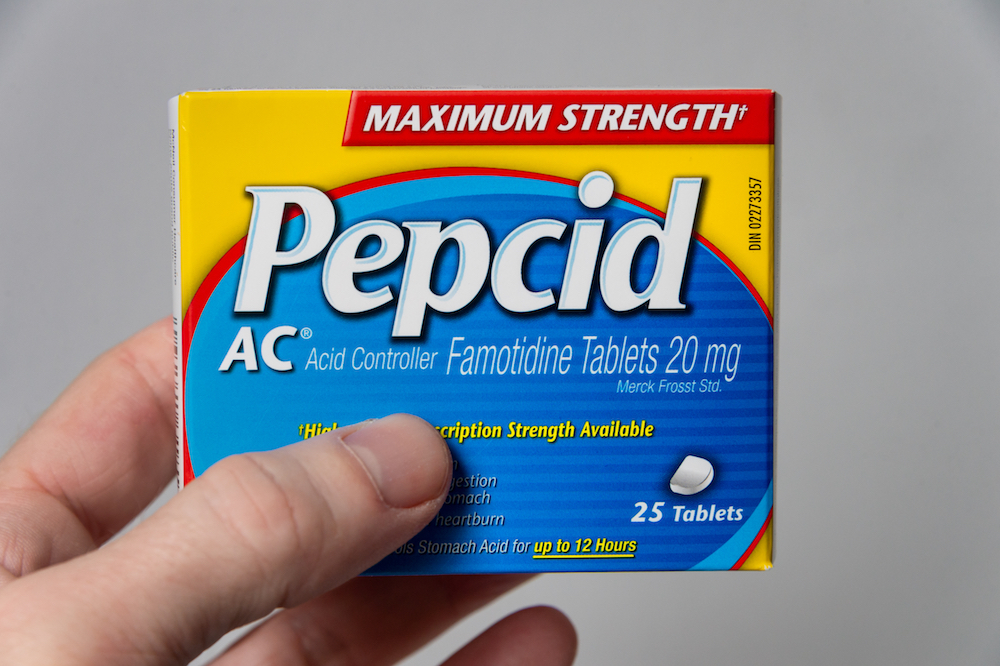
Dose: 20mg a day
How it may Help: Pepcid is an acid reducer medication that may have some anti-viral properties. It seems to lower the risk of intubation and death in hospitalized patients.
Studies: Studies are ongoing
LINK Cleveland.com Pepcid Research
____________________
Baby Aspirin
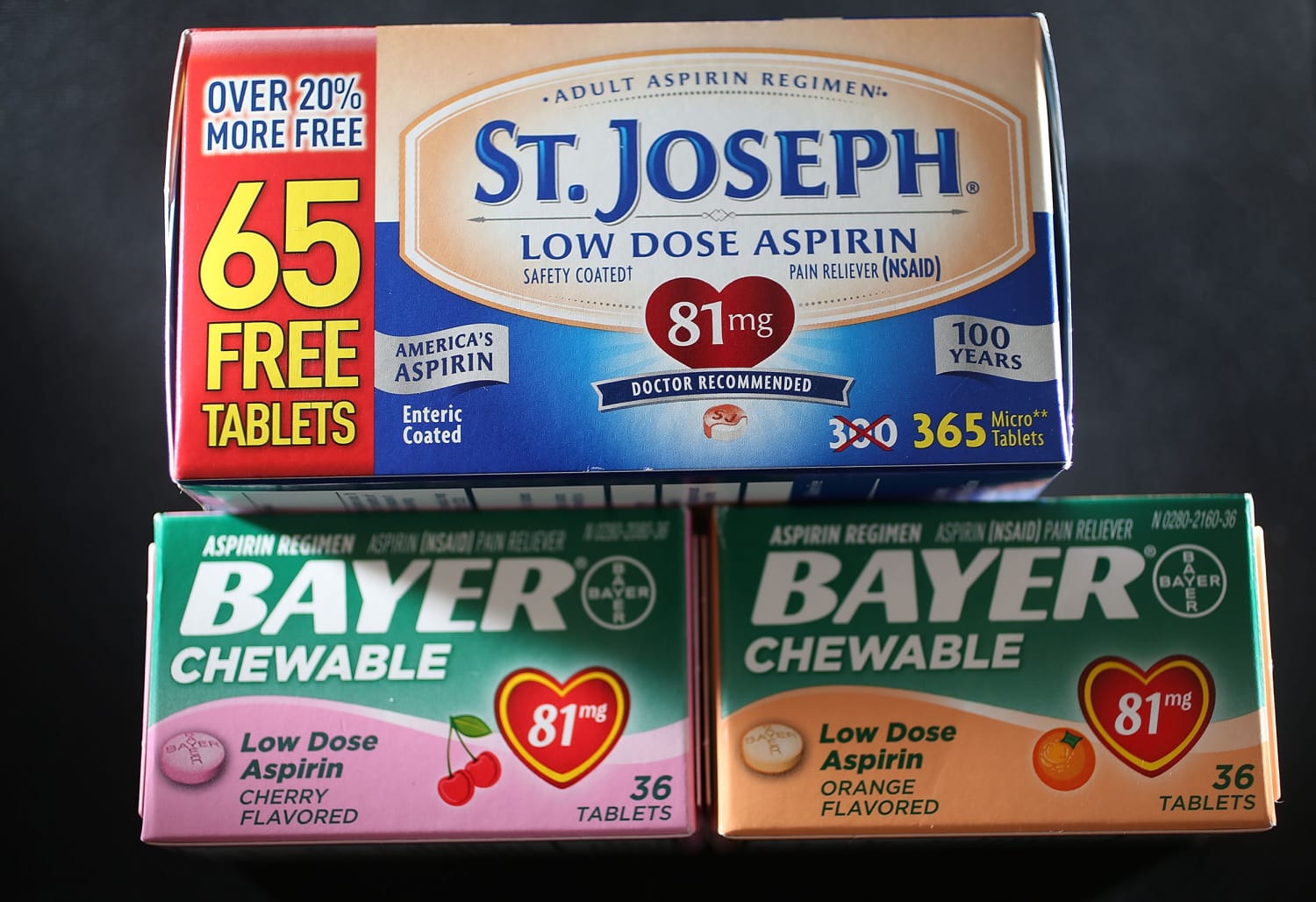
Dose: 81mg a day
How it may Help:
- The SARS-CoV-2 (COVID-19) virus can sometimes cause blood platelets to clump, leading to potential blood clots that damage organs.
- Aspirin is known to thin the blood, helping to prevent blood clots in people who have cardiovascular disease.
- A new study published in the journal Anesthesia & Analgesia shows that people hospitalized with COVID-19 benefitted from taking low-dose aspirin.
For people hospitalized because of COVID-19, low-dose aspirin may decrease the chance of being admitted to the intensive care unit (ICU), being placed on a mechanical ventilator, or dying.
Studies:
____________________
OTC Cold Medications
Talk with your Pharmacist!
They can be very helpful.
–Mucinex to break up and thin mucus
–Dextromethorphan (DM) to soothe/soften a cough
–Antihistamine such as Claritin or Zyrtec or Alegra or a nasal spray like Flonase or Nasonex for a runny nose
____________________
Pain & Fever Medications
–Tylenol (acetaminophen) with a maximum dose of 3250 mg a day
Recommended as first-line treatment for fever, headache, or body aches (unless you have liver disease)
or
–NSAIDs: Aleve or Advil or Motrin or Ibuprofen or Naprosyn or Meloxicam or Diclofenac (use caution if you have kidney disease, stomach ulcers or bleeding disorders)
____________________
Standard Treatment
Rest & fluids
Contact a medical provider if you are worried or feel worse or have shortness of breath.
Be Aware
For some individuals, supplements may be a helpful addition, but should not replace a healthy diet.
All of these immune-boosting nutrients can be obtained from eating a wide variety of whole foods, including vegetables, fruits, whole grains, legumes, low-fat dairy, lean meats, and fish.
Although these supplements have some evidence to suggest boosted immunity with their use, we do not have enough solid data to indicate they can reduce the risks associated with COVID-19.
Please also note these doses are for adult patients.
There is not enough information to support the use of supplements in children.
As always, it is best to check with your healthcare provider or pharmacist before starting any new supplement(s) to avoid any possible drug interactions or drug-herbal interactions.
Home Treatment for covid
Home Treatment for covid



Very Helpful. Thank you.